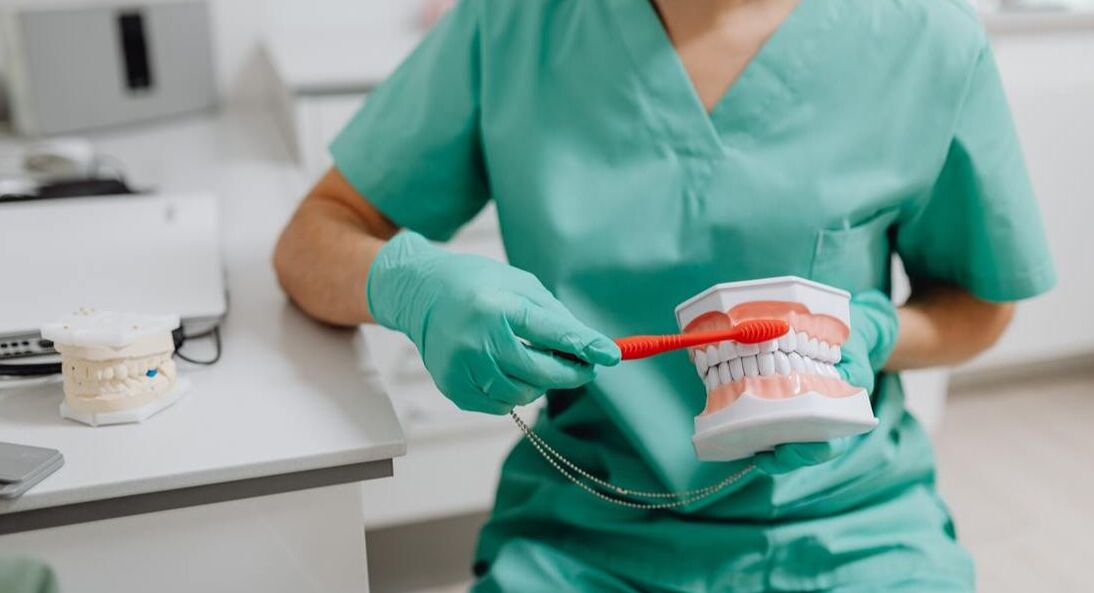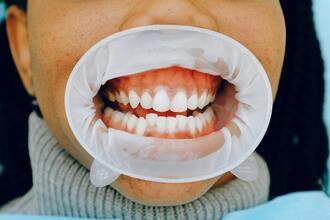Foul-smelling breath can result from a multitude of reasons, such as poor oral health care and hygiene, food, medications, tobacco products, and infections or diseases. Poor dental hygiene can result in food particles remaining in the mouth and turning into bacteria. Dental care not only consists of cleaning your teeth, but your tongue, and any oral products as well. Food plays a large role in creating foul odors too. Certain foods we eat can increase oral bacteria because they are absorbed in the bloodstream, taken up by the lungs, and released through the nose and mouth. For example, garlic and onions are linked to bad breath because they create gasses that move to the lungs and are held onto for long periods of time. Moreover, some medications can have the same effect. Some drugs may be broken down the same way that garlic and onions are, releasing a gas into the bloodstream that is released through our breathing. Others may inadvertently cause bad breath by creating a dry mouth. With this condition, saliva is unable to cleanse the mouth of bacteria and food particles. Furthermore, using tobacco products leaves its own odor on top creating additional oral health problems. Like some medications, tobacco products can also lead to dry mouth. They are also likely to cause gum disease, another source of bad breath. Other infections, diseases, and conditions include but are not limited to cavities, tonsil stones, cancers, metabolic conditions, and even illnesses pertaining to areas other than the mouth. The mouth, nose, and throat are closely affiliated when it comes to health. Problems in any of those areas can result in bad breath or halitosis, a chronic bad breath condition. Solutions for bad breathOral Health Care Oral health not only consists of routinely brushing and keeping your oral products clean but also making sure to routinely visit the dentist and check on the health of your mouth and for possible cavities, diseases, etc. While brushing is not the only solution for controlling bad breath, it is vital to do so. Plaque is a colorless, sticky film of bacteria that forms around the teeth. If left to remain, plaque can irritate your gums and eventually form cavities or turn into gum disease. It’s critical that the teeth are brushed twice a day for two minutes each time. Brushing with fluoride-based toothpaste is helpful, in that the fluoride can strengthen tooth enamel, which protects from acids created by oral bacteria. Flossing is important, too, as it can get deep between the teeth and clean out any trapped bacteria that may have been missed. Flossing also helps to loosen trapped particles so that they can be brushed away. Moreover, an often forgotten piece to the puzzle is the tongue. The tongue can trap bacteria and create a spawning area for more. Certain bacteria that sit on the back of the tongue can adversely react with amino acids and give rise to sulfuric-smelling odors. Lastly, keeping oral appliances, such as dentures, retainers, and mouth guards clean is a crucial aspect of oral health care and hygiene. Like the mouth, bacteria, fungi, and food particles can build on these items and wreak havoc if not properly taken care of. Food and Medication Be cautious of what you’re consuming and bringing into your body. As mentioned above, foods like garlic and onions release lingering gasses. Consuming too much of these foods will result in a longer-lasting period of foul odor. In addition, keto diets that promote high-protein and low-carb consumption are infamous for creating bad breath. The key cause is the production of ketosis and protein metabolism. Ketones, or the by-product of broken-down fatty acids, are released through urination and exhalation. Keto diets allow for the build-up of ketones, which results in more odor being released. Recommended foods for combating bad breath are fresh herbs and sweet-smelling fruit. Fresh herbs have a lot of chlorophyll, which helps to neutralize body odor. Fruits that are high in vitamin C help to kill bacteria. A quick fix to poor breath is eating mints or chewing gum. However, mints and gum act as a barrier to bacteria. Instead of correcting the issue, they simply mask them temporarily. A better solution is simply to drink or rinse your mouth with water while and after eating. Drinking and rinsing help to rebalance the PH levels in your mouth and loosen and remove food particles. Tobacco Products Cigarettes and oral tobacco products should be avoided for the reasons previously mentioned. The chemical compound within the products mixes with the saliva to cause a lingering odor that cannot be avoided. They stick to the surface of the mouth, teeth, and tongue, making them difficult to get rid of. Infections, Diseases, and Conditions Dry mouth is a common condition that causes bad breath. It’s important to keep hydrated as it’s healthy for your breath, mouth, and body. Other ways to eliminate dry mouth are to chew sugar-free gum to stimulate saliva production, limit caffeine, breathe through your nose, use a humidifier, and use mouthwashes that do not contain alcohol. Last but not least, visit your dentist. A dentist will give you professional insight into any potential infections, diseases, or conditions occurring in your mouth. They will also provide you with medical advice and a treatment plan. It is ideal to visit a dentist every six months for risk assessment and proper care. Sources: Halitosis (Bad Breath) What is halitosis? Bad Breath Why Low-Carb Diets Cause Keto Breath Dry mouth treatment: Tips for controlling dry mouth Keywords:
Bad breath, halitosis, cornerstone, cornerstone dental labs, bacteria, oral hygiene, brushing, dry mouth, oral, teeth, flossing, gum disease, breath, dentist, saliva, food particles, the dental lab, oral care, healthcare
0 Comments
Leave a Reply. |


